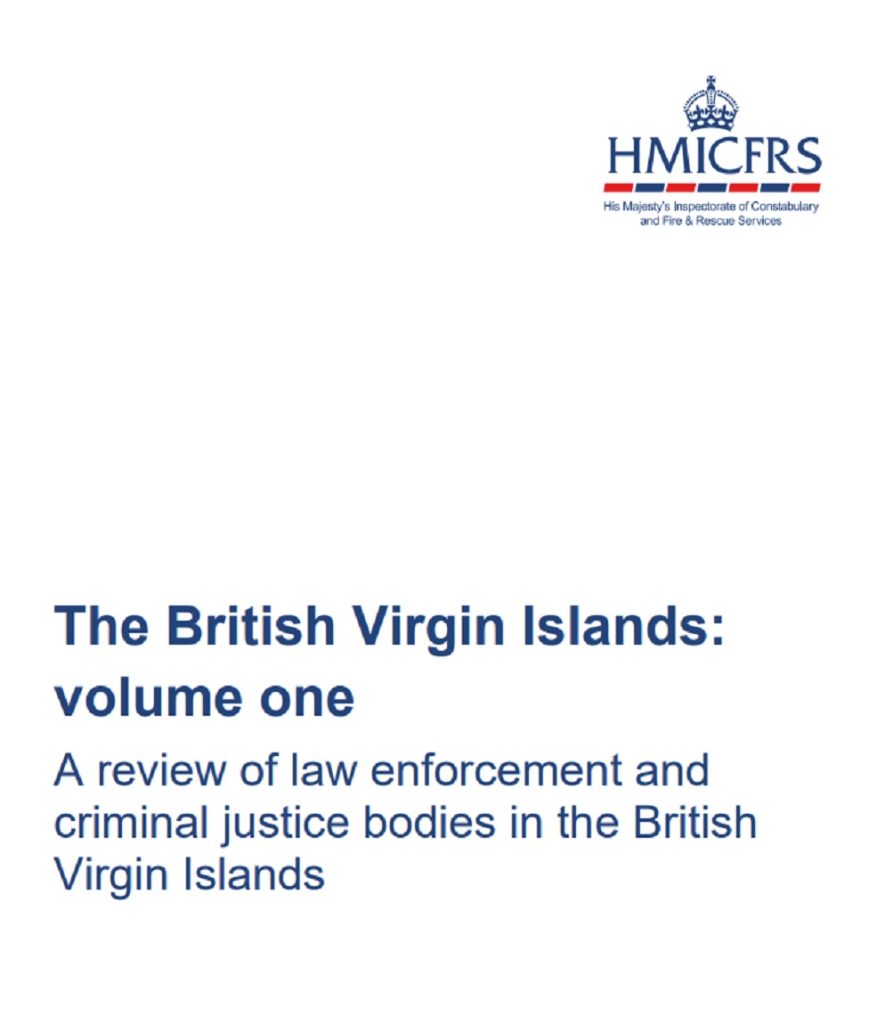A comprehensive review of law enforcement and criminal justice bodies in the British Virgin Islands (BVI) has uncovered significant issues of corruption and operational failures, leading to 138 recommendations for reform.
The 169-page document, reviewed by His Majesty’s Chief Inspector of Constabulary and Fire & Rescue Services, Andy Cooke, highlights long-standing corruption and systemic deficiencies across several public sector bodies.
Chief Inspector Cooke’s review scrutinized nine key public sector entities: the Royal Virgin Islands Police Force (RVIPF), His Majesty’s Customs, the Financial Investigation Agency, the Department of Immigration, His Majesty’s Virgin Islands Prison Service, the Office of the Director of Public Prosecutions, the Magistrate’s Court, the Eastern Caribbean Supreme Court, and the Attorney General’s Chambers. Among these, the RVIPF received the most recommendations, with 38, followed by Marine and Border Security with 27.
Cooke expressed grave concerns about not only the reviewed organizations but other relevant departments and government ministries across the public sector that negatively impact law enforcement and criminal justice operations.
“Often it was the processes and procedures across the public sector and how they were applied that had a negative effect on law enforcement and criminal justice bodies. These included how funding and recruitment operated, how the most basic goods and services had to be procured and how decisions were reached and applied. We also found that leadership in some of the organisations we reviewed needed to improve,” he stated.
The lack of basic governance principles, Cooke noted, fosters an environment where corrupt practices can flourish. This systemic issue he said has eroded confidence in the performance management systems designed to ensure effective and ethical operation of individuals, teams, and organizations.
The review also identified serious failings within the territory’s law enforcement and criminal justice bodies, some of which the review found to pose direct threats to staff and public safety. Cooke emphasized that these issues are not solely the responsibility of current senior leaders.
“In some cases, these were so serious as to endanger the lives of staff and the public… Often these failings had existed for many years, and the changes required are contingent on financial and political support, which we found to be lacking,” he explained.
A particularly troubling finding was the pervasive lack of trust, cooperation, and collaboration between public sector bodies. Cooke warned that without significant improvement in inter-agency cooperation, the effectiveness of each organization would be compromised.
“This may be because of corrupt or dishonest practices, some of which were identified in the Commission of Inquiry report. Regardless of the reasons, a failure by law enforcement and criminal justice bodies to work better together will undermine the effectiveness of each organisation,” Cooke stated.
While Volume One of the report outlines the immediate areas for improvement within the nine reviewed bodies, Volume Two, expected by late summer 2024, will offer a more detailed assessment of how current arrangements can be enhanced, along with additional recommendations and options for change.

